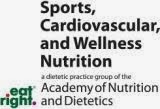Refuel, rehydrate, and repair. These three interrelated
approaches should be the focus for all competitive athletes engaged in
endurance-based training. Your fuel stores, body fluids, and electrolytes can
easily become depleted following a long sustained endurance training session.
This makes replenishing fuel stores and rehydrating essential for optimizing
training performance.
However, many endurance athletes tend to overlook the importance
of dietary protein and only focus on carbohydrates and hydration. It’s time to
change that, here is a quick review on the importance of dietary protein for
endurance athletes.
Amino acids – specifically leucine, a known regulator of
muscle protein synthesis (Norton 2006) – are oxidized during endurance training.
The degree to which amino acids are oxidized is based on several factors such
as exercise intensity and low muscle glycogen availability to name a few. None
the less, these lost amino acids do not contribute to muscle protein synthesis
and should be replaced through your dietary intake.
The current population requirement for protein is set at 0.8
g/kg per day or 0.36 g/lb. per day. This recommendation is not sufficient for
athletes involved in strenuous endurance or resistance training. The general
protein recommendation for endurance athletes is 1.2 to 1.4 g/kg per day or 0.55
to 0.64 g/lb. per day. (Rodriguez 2007) For example, a 150 lb. endurance
athlete should consume in the range of 83 to 96 grams of protein per day. But,
the majority of endurance athletes are likely meeting or exceeding this range
when their daily energy needs are met. (IOC, 2010)
Meeting the recommendations
for protein, however, may not be as important as the type of protein and the
timing of intake for maximizing recovery and adaptations. (Tarnopolsky 2004).
The amount of protein consumed is an important nutritional
consideration. After resistance training, even small (5 to 10 g) of protein increases
muscle protein synthesis (Moore et al. 2009). Muscle protein synthesis is
further increased after the ingestion of a larger (20g) dose of protein, but
plateaus with a bigger dose. (Witard et al. 2014) Therefore, it seems practical
to recommend similar amounts of protein – that is 20 to 25 g – after endurance
training to facilitate muscle remodeling processes.
The quality of protein you consume is also an important
factor. Dietary proteins differ in amino acid concentrating and the rates at
which they are digested and absorbed. As mentioned subsequently, leucine serves
as a substrate for muscle protein synthesis. Therefore athletes who wish to
enhance muscle protein synthesis during their early recovery phase may benefit
more with the ingestion of rapidly, leucine-enriched proteins like whey (Breen
et al. 2011). Other high-quality sources of protein include eggs, dairy, lean
meats, and soy.
While little attention has focused on the ability of dietary
protein to enhance skeletal muscle remodeling and promote adaptations for the
endurance athlete, the fact that dietary protein is the building blocks for
muscle makes protein an important – and perhaps underappreciated – nutritional
component for endurance athletes.
Always seek advice from a sports dietitian to optimize
dietary protein intake as every athlete is different.
Gavin Van De Walle is an ISSA
Certified Fitness Trainer, a NANBF Natural Competitive bodybuilder, a nutrition
columnist for “The Collegian,” and a dietetic student at South Dakota State
University. Once Gavin becomes an RD, he will aim to achieve the distinguished
Certified Specialist in Sports Dietetics (CSSD) credential.
References
Breen, L., Philip, A., Witard, O.C., Jackman, S.R., Selby,
A., Smith, K., et al. 2011. The influence of carbohydrate-protein co-ingestion
following endurance exercise on myofibrillar and mitochondrial protein
synthesis. J. Physiol. 589(16):
4011-4025. doi:10.1113/jphysiol.2011.211888.
International Olympic Committee (IOC) Consensus Statement on
Sports Nutrition, 2010.
Moor, D.R., Robinson, M.J., Fry, J.L., Tang, J.E., Glover,
E.I., Wilkinson, S.B., et al. 2009. Ingested protein dose response of muscle
and albumin protein synthesis after resistance exercise in young men. Am. J. Clin. Nutr. 89(1): 161-168.
doi:10.3945/ajcn.2008.26401.
Norton LE, Layman
DK. Leucine regulates translation initiation
of protein synthesis in skeletal muscle after exercise. J Nutr 136: 533S–537S, 2006.
Rodriguez NR, Vislocky
LM, Gaine PC. Dietary protein, endurance exercise, and human skeletal-muscle
protein turnover. Curr Opin Clin Nutr
Metab Care. 2007; 10:40-45.
Tarnopolsky, M. 2004. Protein requirements for endurance
athletes. Nutrition, 20(7-8):
662-668. doi.10.1016/j.nut.2004.04.008.
Witard, O.C., Jackman, S.R., Breen, L., Smith, K., Selby,
A., and Tipton, K.D. 2014. Myofibrillar muscle protein synthesis rates
subsequent to a meal in response to increasing doses of whey protein at rest
and after resistance exercise. Am. J.
Clin. Nutr. 99(1): 86-95. doe:10.3945/ajcn.112.055517.

.jpg)


